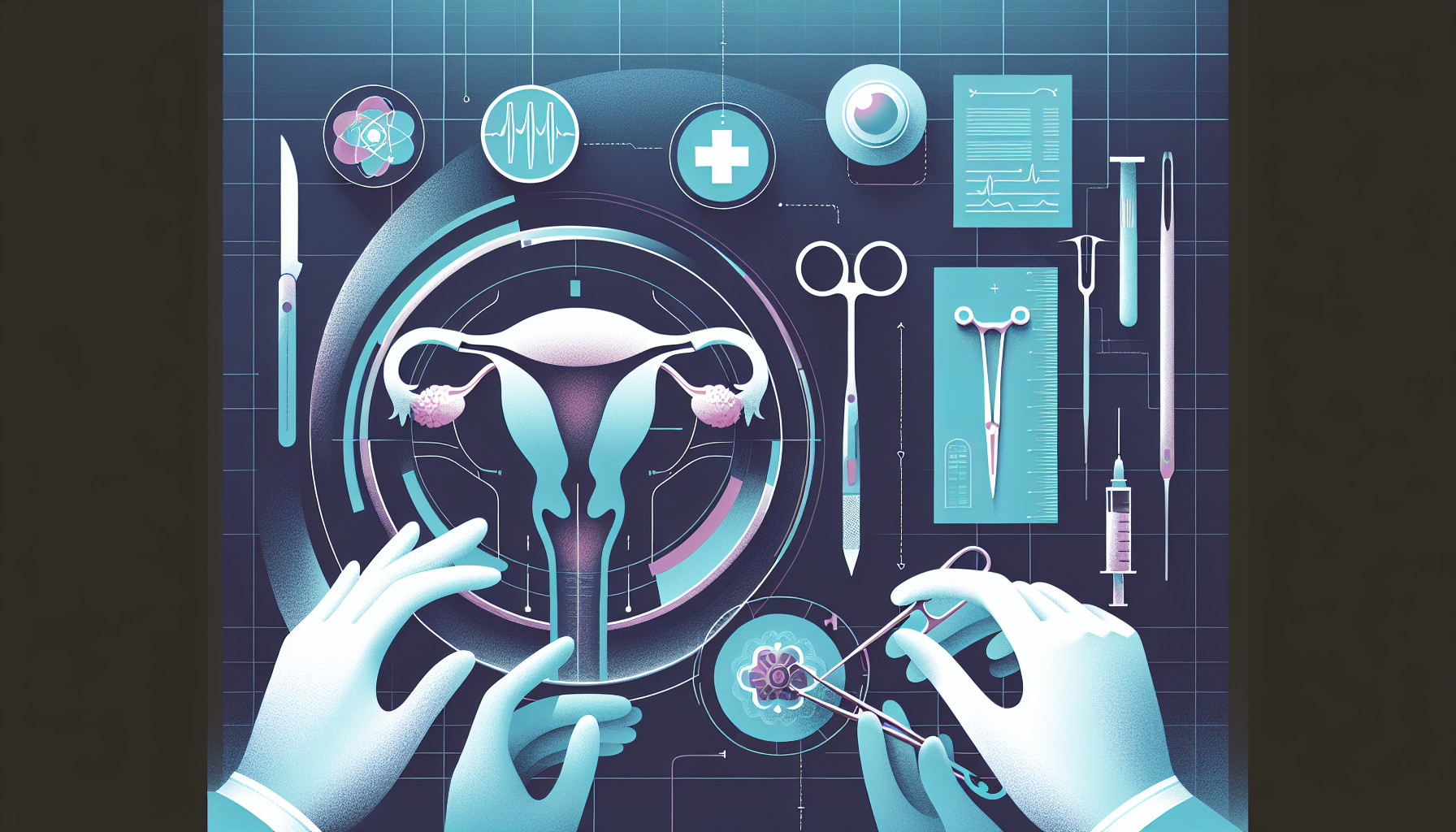Our Summary
This research study aimed to assess the effectiveness of using microwave ablation, guided by ultrasound, to treat symptoms caused by uterine fibroids. This was done at Danderyd Hospital in Sweden from 2020 to 2023. Microwave ablation involves using heat to destroy tissue, in this case, the fibroids in the uterus. The main goal of the study was to see if this treatment reduced the symptoms of fibroids, which can include heavy menstrual bleeding and pain.
The study found that this treatment was very effective in reducing symptoms and improving patients’ quality of life. The symptoms decreased by 37%, and the patients’ health-related quality of life increased by 74%. The procedure also reduced menstrual blood loss by 38% and caused the fibroids to shrink by about 64%.
The treatment was particularly effective for a type of fibroid that grows just under the lining of the uterus (submucosal fibroids), which showed the highest rate of shrinkage (82%).
Most patients (97%) were able to leave the hospital on the same day as their treatment. There was one adverse event, but generally, the treatment was well-tolerated, and any postoperative pain was mild to moderate.
In conclusion, the study found that microwave ablation is a highly acceptable, minimally invasive treatment for uterine fibroids, particularly for patients who wish to preserve their uterus.
FAQs
- What is the main goal of using microwave ablation to treat uterine fibroids?
- How effective was microwave ablation in reducing symptoms and improving patients’ quality of life?
- Is microwave ablation suitable for all types of uterine fibroids or is it more effective for certain types?
Doctor’s Tip
One helpful tip a doctor might tell a patient about uterine ablation is to follow all post-procedure instructions carefully, including taking any prescribed medications, avoiding heavy lifting or strenuous activity for a certain period of time, and attending all follow-up appointments. It is important to communicate any concerns or changes in symptoms to your healthcare provider promptly.
Suitable For
Patients who are typically recommended for uterine ablation are those who suffer from symptoms caused by uterine fibroids, such as heavy menstrual bleeding, pelvic pain, and pressure symptoms. Additionally, patients who have completed childbearing and wish to preserve their uterus may also be recommended for this procedure. It is important for patients to discuss their symptoms and medical history with their healthcare provider to determine if uterine ablation is the right treatment option for them.
Timeline
Before uterine ablation:
- Patient experiences symptoms of uterine fibroids such as heavy menstrual bleeding and pain
- Patient consults with a healthcare provider to discuss treatment options
- Healthcare provider recommends uterine ablation as a minimally invasive option
- Patient undergoes preoperative evaluations and tests to ensure they are a suitable candidate for the procedure
After uterine ablation:
- Procedure is performed using microwave ablation guided by ultrasound
- Patient is monitored postoperatively for any complications
- Most patients are able to leave the hospital on the same day of the procedure
- Patient experiences a reduction in symptoms such as menstrual blood loss and pain
- Fibroids shrink in size, particularly submucosal fibroids
- Patient’s quality of life improves significantly
- Follow-up appointments are scheduled to monitor the effectiveness of the treatment and address any concerns or complications
What to Ask Your Doctor
Some questions a patient should ask their doctor about uterine ablation include:
- What are the potential risks and side effects of microwave ablation for treating uterine fibroids?
- How long does the procedure typically take, and what is the recovery time?
- Will I need to undergo any additional treatments or follow-up appointments after the ablation?
- How soon can I expect to see improvements in my symptoms after the procedure?
- Are there any factors that may affect the success of the treatment, such as the size or location of my fibroids?
- Will the ablation affect my fertility or ability to become pregnant in the future?
- Are there any lifestyle changes or precautions I should take before or after the procedure?
- How long do the effects of the ablation typically last, and will I need repeat treatments in the future?
- Are there any alternative treatments or options available for managing my fibroid symptoms?
- Can you provide more information about the research and studies supporting the effectiveness of microwave ablation for uterine fibroids?
Reference
Authors: Jonsdottir G, Beermann M, Lanz E, Nikodell A, Cronsioe A, Hasselrot K, Kopp-Kallner H. Journal: Acta Obstet Gynecol Scand. 2025 Feb;104(2):350-356. doi: 10.1111/aogs.15041. Epub 2024 Dec 19. PMID: 39697096
